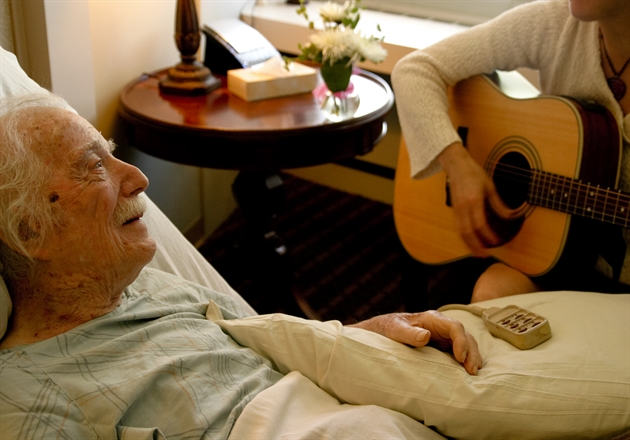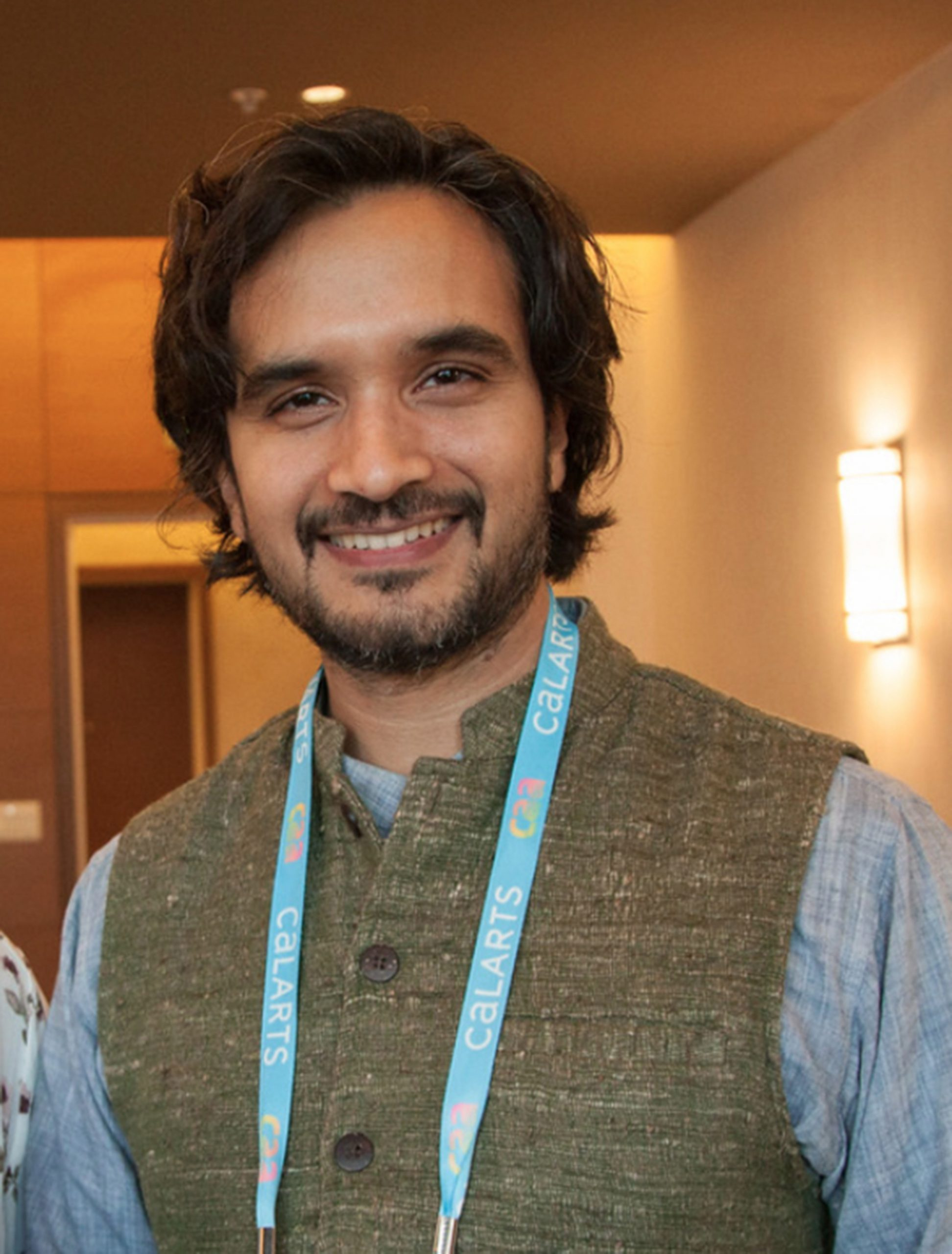In the realm of musical theater, the palliative care musical “Night Side Songs” emerges as a poignant exploration of life’s most profound challenges. This innovative production, created by the talented duo Daniel and Patrick Lazour, draws on the expert insights of palliative care specialist Susan Block to portray a nuanced cancer patient story that resonates deeply with audiences. The show encapsulates the raw emotions surrounding illness and mortality, offering a theatrical performance that encourages intimate connections between performers and viewers alike. As viewers join the narrative journey of Yasmine, a young cancer patient, they are invited to confront the often-unspoken aspects of death and dying, making this musical both a thought-provoking and healing experience. Through the evocative lyrics and evocative staging, “Night Side Songs” not only entertains but also educates, shedding light on the critical importance of palliative care in our lives.
As an artistic endeavor transcending typical genres, the palliative care musical genre offers an innovative way to explore the themes of life, illness, and mortality. “Night Side Songs,” a powerful theatrical piece, encapsulates the struggles and triumphs faced by those dealing with serious health challenges. With a narrative driven by the experiences of a young cancer patient, this production illustrates the delicate interplay of hope and despair inherent to the human condition. By engaging audiences in this unique format, the show goes beyond mere entertainment to foster conversation about crucial topics often shrouded in silence. As it bridges the gap between performance art and the stark realities of palliative care, this musical invites viewers to reflect on their perceptions of life, death, and the support we all need when facing illness.
Exploring the Essence of Palliative Care Musical
Palliative care musical, exemplified by productions like ‘Night Side Songs’, offers a unique blend of art and medicine, serving as a poignant reminder of the complexities surrounding end-of-life issues. These musical narratives not only aim to entertain but also hold a mirror to the experiences of patients, families, and caregivers. They encourage dialogue about often-taboo topics such as mortality and grief, making the subject matter accessible in a way traditional discourse cannot. Bringing together the emotional weight of stories with the vibrant medium of musical theater fosters an environment where audiences can empathize and engage profoundly.
In ‘Night Side Songs’, the immersive experience heightens the impact of palliative care stories, vividly illustrating the lived experiences of cancer patients through song and performance. By employing an emotional lens, the musical humanizes the challenges faced by those dealing with illness, allowing audiences to connect with the characters on a personal level. The collaborative effort between palliative care specialists like Susan Block and the Lazour brothers exemplifies how multidisciplinary approaches in creating art can lead to truthful and compassionate representations of difficult journeys.
Susan Block: A Pioneer in Palliative Care
Susan Block’s career as a palliative care specialist has significantly shaped the conversation around how we approach illness and end-of-life care in our society. Having spent over thirty years in the field, Block has become a leading voice advocating for the integration of palliative care in medical treatment. Her insights not only reflect the clinical aspects but also emphasize the necessity of emotional support for both patients and their families, acknowledging the psychological impacts of terminal illnesses. This ideology aligns perfectly with the thematic undertones in ‘Night Side Songs’, where personal stories and medical realities intertwine.
Through her work, Block showcases the evolution of attitudes towards dying patients, challenging the outdated views that often infantilized them within hospital environments. Her partnership with the Lazour brothers in ‘Night Side Songs’ represents a commitment to creating awareness through art, aiming to break down barriers of silence surrounding death. By understanding and articulating the human experience within healthcare narratives, she helps pave the way for a future where open discussions about mortality can lead to healing and understanding.
The Role of Theater in Discussing Serious Illness
Theater serves as a powerful platform for confronting uncomfortable truths, especially in the realm of serious illness and palliative care. Productions like ‘Night Side Songs’ employ musical theater’s emotive potential to raise awareness and initiate conversations around topics often avoided in everyday discussions. By combining artistic expression with deeply personal stories, these performances do not merely entertain; they educate and promote empathy among audiences, inspiring them to reflect on their feelings toward illness and death.
Furthermore, engaging with theater invites individuals to participate actively in the narrative, making the experience collaborative. As noted by A.R.T.’s Artistic Director Diane Paulus, the choice of performance spaces that foster intimacy enhances not only the actors’ connection with the audience but also the shared emotional journey therein. Such interactions underline the importance of community in processing grief and supporting one another through health challenges, making theater an invaluable tool in the realm of healthcare advocacy.
The Emotional Depth of ‘Night Side Songs’
‘Night Side Songs’ dives into the emotional depths of living with a serious illness through its protagonist, Yasmine, a young cancer patient. Her story provides insight into the fears, hopes, and complexities of navigating a life altered by illness. The Lazour brothers’ dedication to accurately capturing the realities of palliative care, coupled with feedback from experts like Susan Block, ensures that the show resonates authentically with audiences. This realism, combined with the uplifting nature of musical storytelling, creates a profound dynamic that reflects both despair and hope.
As the narrative unfolds, it becomes clear that the purpose of ‘Night Side Songs’ extends beyond entertainment; it serves as a conduit for shared experiences and understanding. Block’s insights reinforce the notion that discussions about death cannot occur in isolation; they flourish in communal settings. Each performance invites audiences to witness and recognize their own fears and experiences surrounding illness, reinforcing the universality of Yasmine’s journey and encouraging dialogue about topics that affect us all.
Creating Space for Conversations About Death
One significant aspect of the creation of ‘Night Side Songs’ is its focus on fostering open conversations about death and dying, an area often shrouded in silence. The collaboration between experts like Susan Block and artists in musical theater seeks to dismantle the societal taboos surrounding these discussions. By shining a light on personal and collective stories, the musical makes room for individuals to confront their feelings about mortality, rejecting stigma and encouraging healthier emotional processing.
This supportive environment is essential for those affected by serious illness; it opens avenues for expression that can mitigate feelings of isolation. As Block points out, creating opportunities for patients and families to articulate their fears and anxieties can lead to deeper understanding and connection. ‘Night Side Songs’ ultimately empowers audiences not just to witness these narratives but to contribute to the ongoing conversation about life, death, and everything in between.
The Impact of Community in Palliative Care
Community plays an essential role in the experience of patients receiving palliative care. The musical ‘Night Side Songs’ emphasizes this by incorporating varied perspectives—from caregivers to family members—showcasing how deeply interconnected our experiences are when facing serious illness. The collaboration among the Lazours, Susan Block, and theatrical professionals illustrates the value of a multidisciplinary approach to storytelling that can elevate awareness and empathy within the community.
Moreover, when individuals engage with the musical on an emotional level, it can foster a sense of belonging and shared understanding. As audience members witness stories reflective of their struggles, it cultivates an environment that encourages open discussions about their own experiences or those of their loved ones. The shared experience of viewing ‘Night Side Songs’ not only breaks down barriers of silence but also strengthens community ties, allowing collective processing of grief and support.
The Transformation of Medical Narratives Through Art
Art has the profound ability to transform the way medical narratives are perceived and understood. ‘Night Side Songs,’ through its musical storytelling, navigates complex themes of health, illness, and mortality in a manner that is both engaging and educational. By melding the emotional resonance of musical theater with the sobering realities of palliative care, the Lazour brothers and Susan Block have created a space where audiences can connect with topics often relegated to hushed conversations.
Through powerful performances and poignant lyrics, ‘Night Side Songs’ not only entertains but also enlightens, inviting viewers to reflect on their perceptions of illness and death. This transformation of narratives into a public performance encourages a broader societal dialogue on health care, inviting patients and families to share their stories and challenge the stigma that often surrounds discussions of serious illness.
A New Era for Palliative Care Representation in Media
The emergence of musicals like ‘Night Side Songs’ marks a significant shift in how palliative care is represented in media. Traditionally, discussions around end-of-life issues have taken a clinical approach, often neglecting the emotional and human elements at play. However, with the integration of storytelling through music, the narrative fosters a more compassionate understanding of the complexities faced by patients and their families, as seen through the lens of Susan Block’s insights.
This shift not only encourages more honest discourse about death and dying but also paves the way for broader acceptance of palliative care as a crucial part of the healing process. By utilizing the arts as a vehicle for education and advocacy, ‘Night Side Songs’ serves as a beacon that illuminates the importance of bringing emotional care alongside medical intervention, transforming public perception and increasing awareness about the values of palliative care.
Challenging Perceptions of Theatrical Performance
‘Night Side Songs’ challenges traditional perceptions of theatrical performance by engaging audiences in a way that goes beyond passive observation. The invitation for audience members to participate, such as singing along during the performance, actively transforms the experience from mere entertainment to community engagement. This innovative approach aligns with the intent of the Lazour brothers to create a dialogue about serious health issues, allowing participants to confront their own emotions about illness within a supportive environment.
Diane Paulus’s decision to choose intimate venues for the performance further encourages this participatory essence, breaking away from conventional theater settings. By reshaping the interaction between audience and actors, ‘Night Side Songs’ deepens the impact of its messaging, promoting a shared journey through the complexities of palliative care experiences. This transformation of theatrical performance not only enriches the artistic landscape but also enhances the educational value it provides to society.
Frequently Asked Questions
What is the theme of the palliative care musical ‘Night Side Songs’?
The theme of the palliative care musical ‘Night Side Songs’ revolves around the experiences of a young cancer patient named Yasmine. The musical explores the complexities of illness, caregiving, and the emotions surrounding death and dying, drawing inspiration from Susan Sontag’s idea that ‘illness is the night side of life’. It captures perspectives from patients, caregivers, and medical professionals, making it a rich and moving experience in the realm of theatrical performance.
How did Susan Block contribute to the making of ‘Night Side Songs’?
Susan Block, a palliative care specialist, played a crucial role in the development of ‘Night Side Songs’ by advising the Lazour brothers on the accuracy of the musical’s portrayal of palliative care. She provided feedback during the writing process and attended read-throughs to ensure that the essential elements of end-of-life care and emotional experiences were accurately depicted, thus enhancing the authenticity of the story.
Can ‘Night Side Songs’ help in conversations about palliative care and death?
Yes, ‘Night Side Songs’ serves as a catalyst for conversations about palliative care and death. By presenting themes of illness and the experiences of those affected through musical storytelling, it invites audiences to engage with the topic openly. Susan Block emphasizes the importance of discussing death to alleviate the isolation often felt by patients and their families, making the musical an important tool for fostering understanding and dialogue.
What makes ‘Night Side Songs’ unique in the context of musical theater?
‘Night Side Songs’ is unique in musical theater as it tackles the somber and often taboo topic of death and dying through a powerful narrative and music. Unlike traditional musicals, its focus on palliative care and the cancer patient’s journey offers a deeply emotional and reflective experience that resonates with audiences, aiming to evoke empathy and understanding around the realities of serious illness.
Where is ‘Night Side Songs’ being performed?
‘Night Side Songs’ is being performed in intimate venues to enhance audience connection, specifically at the Cambridge Masonic Temple and Hibernian Hall in Roxbury. This choice of venue creates a unique experience, allowing spectators to feel closer to the performers while engaging with the themes of palliative care and emotional storytelling.
Who are the creators behind ‘Night Side Songs’ and what is their background in musical theater?
‘Night Side Songs’ was created by Daniel Lazour and Patrick Lazour, who have backgrounds in musical theater. Their collaboration with Susan Block, a leading palliative care specialist, allowed them to craft a story that accurately reflects the experiences of those facing serious illnesses, thereby blending powerful narrative with theatrical music.
How does ‘Night Side Songs’ address the emotional aspects of caring for a cancer patient?
The musical ‘Night Side Songs’ addresses the emotional aspects of caring for a cancer patient by providing varied perspectives—those of patients, caregivers, and healthcare providers. This multifaceted approach allows for a deeper understanding of the struggles, fears, and hopes experienced during the illness journey, making it relatable and emotionally resonant for audiences who have faced similar circumstances.
What can audiences expect from the performance of ‘Night Side Songs’?
Audiences can expect a rich and emotional experience from the performance of ‘Night Side Songs’, with a blend of poignant storytelling and engaging music. The intimate setting encourages participation, and audience members are invited to sing along, fostering a collective experience that deepens the impact of the themes surrounding palliative care and illness.
| Key Points | Details |
|---|---|
| Thematic Focus | “Night Side Songs” explores palliative care and the experiences of dying patients through a musical format. |
| Palliative Care Background | Susan Block has over 30 years of experience in palliative care and has observed significant changes over the years. |
| Skepticism to Acceptance | Initially skeptical about musicals on serious themes, Block became supportive after witnessing the show’s emotional depth. |
| Community Engagement | The production aims to foster dialogue about death, addressing feelings of isolation among patients and families. |
| Musical Development | The Lazour brothers researched end-of-life care and collaborated closely with Susan Block to capture authentic experiences. |
| Performance Venues | The show is performed in intimate settings to enhance audience engagement and connection. |
| Audience Interaction | The musical encourages audience participation, inviting them to sing along, which promotes a shared emotional experience. |
| Broader Impact | Block believes the musical resonates with anyone impacted by illness, bringing attention to the uncertainties of medical care. |
Summary
In summary, the palliative care musical “Night Side Songs” powerfully addresses the complexities of facing terminal illness. Through the combined efforts of composer Daniel and Patrick Lazour, and the insightful guidance of Susan Block, this work illuminates the often silent struggles surrounding death and dying. By inviting conversations and fostering emotional connections, the musical seeks to break down the barriers that patients and families face, making it a vital addition to contemporary discussions about palliative care.


